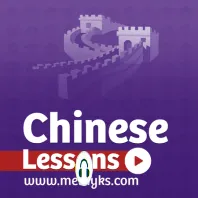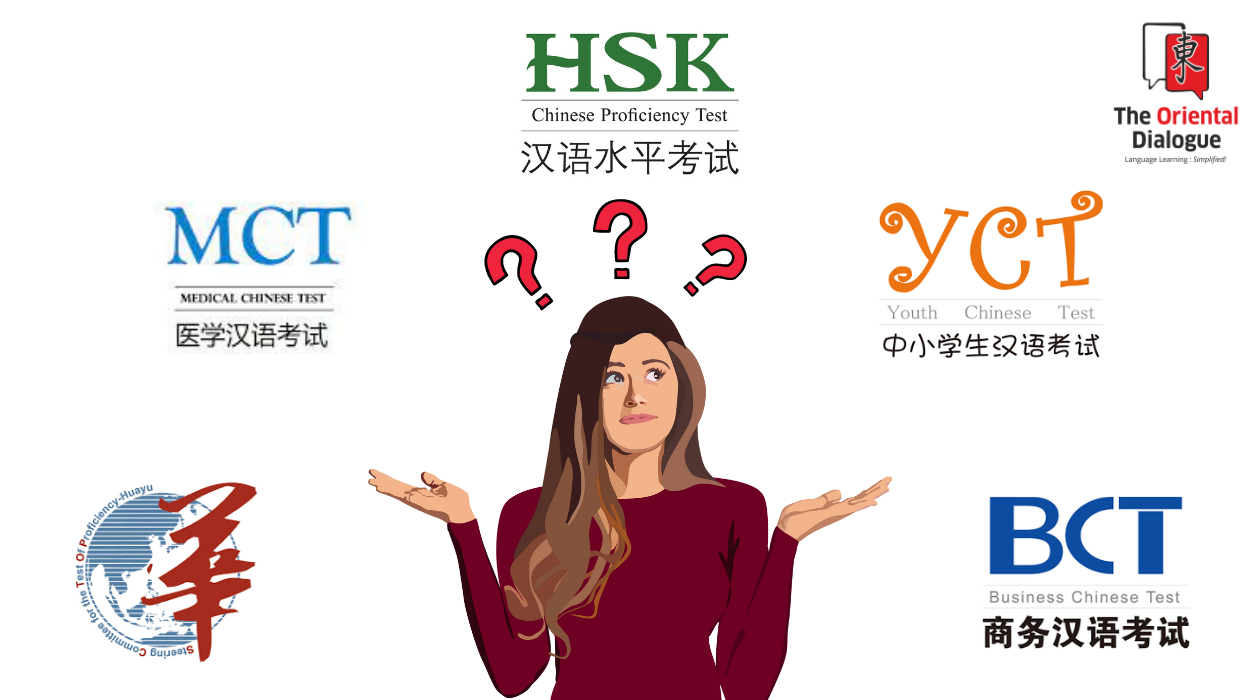In this edition: Chinese girl in Rwanda, Chinese uncle helps Afghan family, what do Chinese men think about cheating, a new Chinese song called 花园种花, a Chinese idiom called 人各有志, Beijing drifters and ‘white paper protests’ in Shanghai.
Interview: Chinese-African girl living in Rwanda
I was looking for new Chinese YouTube content to watch, when I stumbled upon a channel from a Chinese vlogger in Africa. It’s interesting to see Chinese people interacting with African locals. The vlogger interviewed a Chinese-African girl who lives in Rwanda and visits an international school. It’s only a short conversation, but she has an interesting story to tell. Her father is Chinese and her mother African. What does she know about China? Why does she like Korean movies better than Chinese cinema? Since she’s relatively young and she only communicates in Chinese with her father, I found it surprisingly easy to understand her.
Level indication: HSK 4 (with Chinese subtitles)
| 中非混血 | Zhōng fēi hùnxiě | Chinese-African |
| 非洲人 | fēizhōu rén | African |
| 国际学校 | guójì xuéxiào | international School |
| 卢旺达 | lúwàngdá | Rwanda |
| 肤色 | fūsè | color |
| 菲律宾 | fēilǜbīn | the Philippines |
| 孙悟空 | sūnwùkōng | Sun Wukong |
| 猪八戒 | zhūbājiè | Zhu Bajie |
Chinese shushu helps poor Afghan family
Closer to China, yet still a long way from home, we find the Chinese vlogger Yaoyang trying to help a poor Afghan family. It seems he and his wife met the young girls earlier during his visit begging for food and then, a few days later, went back to look for them, because they wanted to help. Truly heartwarming to see how they take the young girls to a decent restaurant and buy food and daily necessities in true Chinese fashion (no big words, just buy what is needed in generous quantities).
Level indication: HSK 4 (with Chinese subtitles)
| 阿富汗 | Āfùhàn | Afghanistan |
| 首都喀布尔 | shǒudū Kābù’ěr | capital Kabul |
| 缘分 | yuánfèn | fate |
| 要馕 | yào náng | to beg for naan |
| 一个母亲带着六个女儿的家庭 | yīgè mǔqīn dàizhe liù gè nǚ’ér de jiātíng | a mother with six daughters |
| 捡废品 | jiǎn fèipǐn | pick up waste |
| 用头巾裹的 | yòng tóujīn guǒ de | wrapped in a turban |
| 金色的头发 | jīnsè de tóufǎ | golden hair |
| 皮肤粗造 | pífū cū zào | rough skin |
| 不舍得 | bù shědé | can’t bear (to wear their new shoes) |
| 帮她们实现愿望 | bāng tāmen shíxiàn yuànwàng | to help them realize their wishes |
| 去协调 | qù xiétiáo | to coordinate |
| 遮面 | zhē miàn | to cover up (her face) |
| 苦惯了 | kǔ guànle | used to it |
What Would a Chinese Guy Do If He Catches His Girl Cheating? – Intermediate Chinese
In this new episode from Mandarin Corner, Eileen hits the streets of Ningbo to find out what Chinese men think about cheating and being cheated on. It’s always funny to see that everybody seems to know at least someone who cheated on their partner, but no one ever admits to have committed 出轨 themselves. What’s more, it seems to me that the views concerning 出轨 expressed in this video don’t differ that much from ‘our own’ values. And there’s a sense that – although cheating itself is a bad thing – it’s a sign of progress that the younger generations seem to be increasingly tolerant and open-minded about this. One could also call it ‘individualistic’ – i.o. caring more for their own happiness.
Level indication: HSK 4 / 5 (with Chinese + English + pinyin)
| 出轨 | chūguǐ | to cheat (lit. to derail) |
| 浮躁 | fúzào | impetuous |
| 搞暧昧 | gǎo àimèi | ambiguous |
| 精神出轨 | jīngshén chūguǐ | mental cheating |
| 肉体出轨 | ròutǐ chūguǐ | physical cheating |
| 不可原谅 | bùkě yuánliàng | unforgivable |
| 无法挽回 | wúfǎ wǎnhuí | irreparable |
清谈 Gender Equality | Upper Intermediate (v) | ChinesePod
This short ChinesePod episode deals with the topic of gender equality in the workplace or 职场上的性别平权. A tricky topic, but I like this kind of short learning with Chinese and English subtitles. A pity it’s only a fragment and not the full video lesson (for which you can visit their website and sign up).
Level indication: HSK 4 / 5 (with Chinese + English subtitles)
| 职场上的性别平权 | zhíchǎng shàng dì xìngbié píngquán | gender equality in the workplace |
| 平权 | píngquán | equal rights |
| 受瞩目 | shòu zhǔmù | receive attention |
| 生理特质 | shēnglǐ tèzhì | physical traits |
| 社会角色 | shèhuì juésè | social role |
| 刻板印象 | kèbǎn yìnxiàng | stereotype |
| 应征 | yìngzhēng | to apply |
| 私密 | sīmì | private |
| 隐私 | yǐnsī | privacy |
| 私生活 | sīshēnghuó | private life |
| 高危员工 | gāowēi yuángōng | high-risk employee |
小蔥老師 – 花園種花『在小小的花園裡面 挖呀挖呀挖,種小小的種子開小小的花
I was told this song about gardening (!?) got very popular in China. Why – I don’t know. Is there some hidden meaning I’m not getting here or merely a cheerful children song. I’m not even sure this is the official version and who is the artist behind it. In terms of Chinese learning it’s pretty good – it’s repetitive and contains only basic vocabulary and some useful grammar points.
Level indication: HSK 3 / 4 (with Chinese subtitles)
| 在小小的花园里面 | zài xiǎo xiǎo de huāyuán lǐmiàn | in a little garden |
| 挖呀挖呀挖 | wā ya wā ya wā | dig dig dig dig |
| 种小小的种子开小小的花 | zhǒng xiǎo xiǎo de zhǒngzǐ kāi xiǎo xiǎo de huā | Plant small seeds and grow / bloom small flowers |
| 在大大的花园里面 | zài dàdà de huāyuán lǐmiàn | in big garden |
| 挖呀挖呀挖 | wā ya wā ya wā | dig dig dig dig |
| 种大大的种子开大大的花 | zhǒng dàdà de zhǒngzǐ kāi dàdà de huā | plant big seeds and grow / bloom big flowers |
| 在特别大的花园里面 | zài tèbié dà de huāyuán lǐmiàn | in a huge garden |
| 挖呀挖呀挖 | wā ya wā ya wā | dig dig dig dig |
| 种特别大的种子开特别大的花 | zhǒng tèbié dà de zhǒngzǐ kāi tèbié dà de huā | plant very large seeds and produce very large flowers |
Daily Chinese Expression – 人各有志,不要叫别人做自己不喜欢的事儿 Speak Chinese with Da Peng 大鹏说中文
In this episode, Da Peng covers the useful expression 人各有志 which can be translated as “everyone has his own aspirations”, which means that everyone has different ideas, and you are well advised not to force others to do things according to your own ideas. In other words, 人各有志 expresses something we all can relate to. Either because we tried to influence others with our own ideas or others tried to influence us.
Level indication: HSK 4 / 5 (with Chinese subtitles)
| 人各有志 | rén gè yǒuzhì | everyone has his own ambition |
| 志向 | zhìxiàng | ambition |
| 价值观 | jiàzhíguān | values |
| 强迫别人 | qiǎngpò biérén | force others |
| 长见识 | zhǎng jiànshì | gain knowledge |
| 历练 | lìliàn | experience |
| 正宗 | zhèngzōng | authentic |
| 文化底蕴 | wénhuà dǐyùn | cultural heritage |
| 强求别人 | qiǎngqiú biérén | force others |
Shanghai, Urumqi Road|Documentary
(This video unfortunately is no longer available. I’ll add it here if it comes back online.)
This is a short documentary about the ‘white paper protests’ in Shanghai. It already seems like a long time ago, but in November ’22 Chinese protesters used blank sheets of paper to express their anger over COVID-19 restrictions in a rare outpouring of public dissent. The protests were a reaction to an earlier fire at an apartment building in Urumqi, in which at least 10 people were killed, allegedly because they couldn’t escape the blaze due to pandemic control barriers. Most of the restrictions ended soon after the protests.
The protesters were mostly students who risked their future by demonstrating on Urumqi Road. We don’t know for sure if it caused Beijing to end the restrictions sooner, but I think it’s likely that these demonstrations made a difference, as it became evident that the government had overreached and the situation became more and more unpredictable. The last thing they wanted were mass demonstrations in all major cities. A key moment in this short documentary is the protester bravely addressing the crowd and questioning the meaning of collectively shouting slogans, wondering if it will really change something for the better. Someone replies if people shouldn’t be allowed freedom of expression. He wants to do more and non-violently revolt against the restrictions. No more testing. No more health codes. This short film captures the spirit of freedom.
Level indication: HSK 4 / 5 (with English + Chinese subtitles)
| 乌鲁木齐路 | Wūlǔmùqí lù | Urumqi Road |
| 白纸运动 | bái zhǐ yùndòng | white paper movement |
| 关在自己家里 | guān zài zìjǐ jiālǐ | locked in their houses |
| 愤怒 | fènnù | anger |
| 反抗 | fǎnkàng | to resist, revolt |
| 最温和的反抗 | zuì wēnhé de fǎnkàng | the most gentle (way of) resistance |
| 团结 | tuánjié | to unite |
| 同胞们辛苦了 | tóngbāomen | compatriots, you have worked hard |
Documentary: “Daxing is on Fire”
This is a longer documentary about the aftermath of a fire disaster in the southern suburbs of Beijing. In November 2017, a fire broke out in a low-rent tenement building at Xinjian Village in Daxing District, an area mostly inhabited by migrant workers from the inner provinces who often require cheaper accommodation. 19 people died and eight were injured. In the Beijing government’s efforts immediately following to secure safety and minimize security risks in the city, mass eviction of migrant workers was carried out in the name of demolishing “illegal constructions”.
We meet the tragic hero of this film, Li Zhiyong, a migrant worker from Hebei who works at a logistic company, that moved into Xinjian Village in 2014. After the fire he was evicted and started living in a van. His company lost its office and is forced to unload goods clandestinely on a remote parking lot. After moving three times, Li decides to go back to his hometown. His final words to Beijing are: “It’s not that I don’t work hard. The reality is too cruel!” Indeed, this film shows the cruel reality of a migrant worker living in a van, occasionally transporting goods to make some money and drinking cheap liquor to keep warm at night. He’s got nowhere to go and eventually packs up his remaining stuff and leaves for home where he doesn’t know how to make a living, but at least can be a father to his children and a husband to his wife.
Level indication: HSK 4 / 5 (with English subtitles)
| 大兴失火 | Dàxīng shīhuǒ | Daxing caught fire |
| 低端人口 | dīduān rénkǒu | Low-end population |
| 低端 | dīduān | low end |
| 高端 | gāoduān | high end |
| 打工者 | dǎgōng zhě | workers |
| 付不起 | fù bù qǐ | cannot afford |
| 物流 | wùliú | logistics |
| 现实太惨 | xiànshí tài cǎn | reality is too cruel |
| 驾驶证 | jiàshǐ zhèng | drivers licence |
| 流动 | liúdòng | mobile |
| 北漂 | Běi piāo | Beijing drifters |
That’s it for May. As always thanks for dropping by and hope to see you back next month with more Chinese content!












